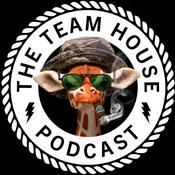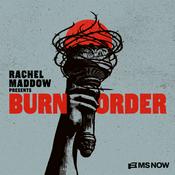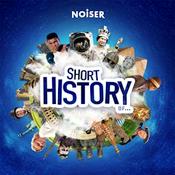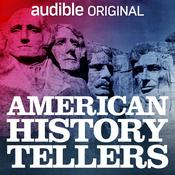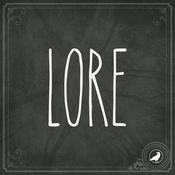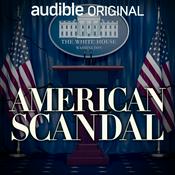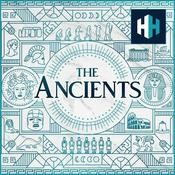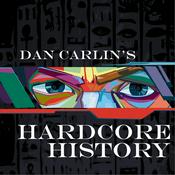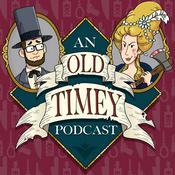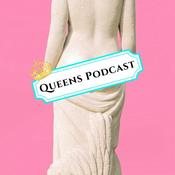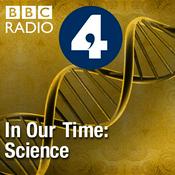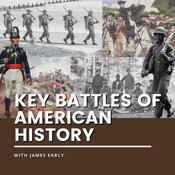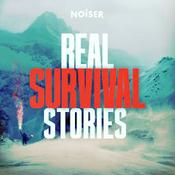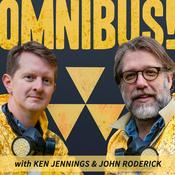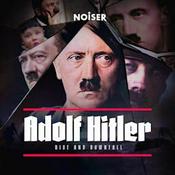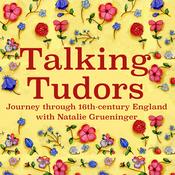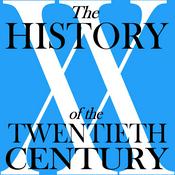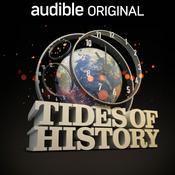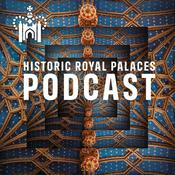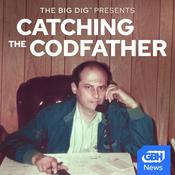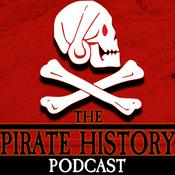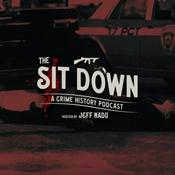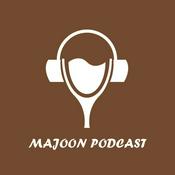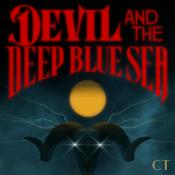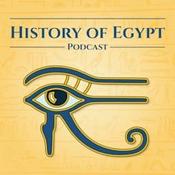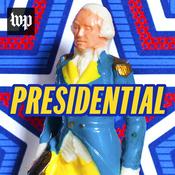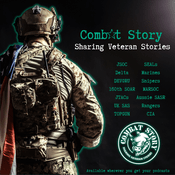210 episodes
- Give to help Chris make Truce
Tim and Beverly LaHaye were a prominent American evangelical Christian couple known for their influential work in ministry, literature, and conservative activism. Tim LaHaye, born in 1926 in Detroit, Michigan, was a pastor, author, and speaker who gained national recognition through his work in Christian fiction and prophecy interpretation. He served as a pastor for over 25 years before turning to full-time writing and speaking, often focusing on end-times theology and family values. Beverly LaHaye, born in 1929, was a vocal advocate for conservative Christian values and women’s roles in society, founding the organization Concerned Women for America in 1979.
Tim LaHaye is perhaps best known as the co-author of the Left Behind series, a best-selling collection of apocalyptic novels written with Jerry B. Jenkins. The series dramatizes a fictionalized version of the Rapture and subsequent tribulation, based on Tim’s interpretation of Biblical prophecy. These books sold over 80 million copies worldwide and sparked renewed interest in eschatology within evangelical circles. In addition to fiction, he wrote numerous nonfiction books addressing topics such as marriage, politics, and spirituality, always with a conservative Christian perspective.
Together, Tim and Beverly LaHaye were a formidable force in American evangelicalism, combining their talents in writing, activism, and public speaking to influence both Christian thought and conservative politics. Married for over 60 years until Tim's death in 2016, they left behind a legacy of fervent advocacy for their faith and values. While supporters praised their dedication to scripture and family, critics often challenged their political and theological positions. Regardless, their impact on late 20th and early 21st-century evangelicalism remains significant.
Sources:
Dreyfuss, R. (2004, Feb). "Reverend Doomsday". Rolling Stone, pp. 46-49.
White, G. (2001, Jul 07). "Evangelical power couple authors Tim and Beverly LaHaye, with scores of books between them, rank as four-star generals to many conservative Christians." [home edition]. The Atlanta Journal The Atlanta Constitution
God's Own Party by Daniel K Williams
PBS article on Comstock Laws
"The men from CLEAN". (1966, Sep 05). Newsweek, 68, 23-24.
Before the Storm by Rick Perlstein
How to Be Happy Though Married by Tim LaHaye
Divided We Stand by Marjorie Spruill
The Unhappy Gays by Tim LaHaye
For a Christian America by Ruth Murray Brown
Carlin v. Board of Education
Listen, America! by Jerry Falwell
With God on Our Side by William C Martin
Christianity Today article about Carter's presence at NRB
“Tim LaHaye--Waging War Against Humanism” Skelton, Nancy Los Angeles Times (1923-1995); Feb 22, 1981
BATTIATA, M. (1987, Oct 03). "Beverly LaHaye leads a powerful force from the right": [CITY edition]. St.Petersburg Times
Hacker, K. (1988, Mar 06). "A WOMAN OF ACTION: FUNDAMENTALIST BEVERLY LAHAYE IS BUSY RALLYING HER 'KITCHEN-TABLE LOBBYISTS' TO ALL SORTS OF POLITICAL CAUSES". Philadelphia Inquirer
NPR article about Moonies
The Evangelicals by Frances Fitzgerald
McMahon, M. (1999, Dec). Come, all ye faithful. The Spectator, 283, 18-19
The United States of Paranoia by Jesse Walker
Discussion Questions:
How have the LaHaye's impacted you?
Does it matter that Tim had so many fears?
He went on to help found the Council for National Policy, the far-right Christian dark money organization. Why does that feel ironic?
How was Tim tied to the battle over segregated academies?
How did LaHaye's background with the John Birch Society fit with his other beliefs?
Learn more about your ad choices. Visit podcastchoices.com/adchoices - Donate to help Chris make Truce
Christians were involved with many forms of media from their inception. They were there at the dawn of radio, with the first commercial broadcast of music being played around Christmas in 1906, and the gospel of Luke was read.
A similar story is true for television. Evangelists loved the new medium, with preachers like Oral Roberts using it to spread their brand of Pentecostalism. Pentecostalism was made for television. Where many denominations featured calm worship services, it seemed like anything could happen with Oral Roberts' brand of Pentecostalism. He healed, he made big claims, and he made a lot of money. Roberts' format was followed by people like Jim Bakker and Pat Robertson.
Pat Robertson created the Christian Broadcasting Network, which later functioned as his platform for launching the political careers of politicians and, eventually, himself. Robertson's influence is all over evangelicalism, from the ubiquity of consumerism and prosperity ideology to our involvement in political movements. He formed the Christian Coalition and was a leader in the Council for National Policy. Robertson attended many of the seminal meetings of the Religious Right. And his message was amplified by his powerful television platform.
Sources:
Pat Robertson: A Life and Legacy by David Edwin Harrell Jr.
PTL: The Rise and Fall of Jim and Tammy Faye Bakker’s Evangelical Empire by John Wigger
Oral Roberts and the Rise of the Prosperity Gospel by Jonathan Root
The US Census
Farnsworth TV and Pioneer Museum in Rigby, ID
The Surprising Work of God: Harold Ockenga, Billy Graham, and the Rebirth of Evangelicals by Garth Rosell
The Evangelicals by Frances Fitzgerald
Prime Time Preachers by Jeffrey K Hadden and Charles E Swann
"Oral Roberts Dead at 91" from CBS News
Report on Strom Thurmond's role in the Southern Manifesto
The Miracle of Seed Faith by Oral Roberts. I used the revised August 2012 version
Reaganland by Rick Perlstein
“Remarks in Support of Senate Joint Resolution 199” Aug 18, 1982. (for Robertson's testimony)
Christian Reconstruction: RJ Rushdoony and American Religious Conservatism by Michael McVicar
Newsweek article about Joe Rogan stats
Video of Oral Roberts healing
Discussion Questions:
What is the prosperity gospel?
How has it impacted you? Your church? The Church in general?
Why is it important to note that the Religious Right guys controlled Christian media outlets? How does that kind of thing shape our theology?
How was Robertson impacted by Roberts?
What is "seed faith"? Does the Bible provide ground for it?
How has consumerism shaped American evangelicalism? How does it tie into prosperity theology?
Learn more about your ad choices. Visit podcastchoices.com/adchoices - Give to help Chris make Truce
Given the recent events in Venezuela, I have decided to run a classic episode from season 3. The question of our era is not "why did we do this?" but "why do we keep doing this?" Why does the United States continue to overthrow other countries?
God willing, I'll be back next week with a new episode about Pat Robertson.
Discussion Questions:
What threat did President Jacobo Arbenz pose to United Fruit?
United
Fruit owned many utilities in Guatemala from the trains to telephone
lines. How would you feel if our utilities were owned by foreign
entities? If they controlled our natural resources?
Do you think the land reform deal was a good one for their country?
Were people like John Foster Dulles right to overthrow Arbenz?
How might it have benefited them to do so?
In what way could the actions of the US in the 1950s reflect poorly on Christianity domestically and abroad?
It
has been argued that American consumers benefit when Latin American and
African countries are thrown in disarray. It means cheaper diamonds,
gold, rubber, and more while also stranding the people in those
countries in poverty.
Does it bother you that you may be benefiting from unbalanced countries?
Do you find the assumption that we are benefiting to be offensive? Why?
Is there anything we can do about it?
Sources:
“Bad Fruit: The Story of the American Coup in Guatemala” by Stephen Schlesinger and Stephen Kinzer
CIA Document profiling Arbenz
YouTube clips of a documentary on the Guatemalan coup
Then-Vice President Nixon talking with Armas after the overthrow
Statistics on Fruit
Financial Times article about United Fruit
Book “One Nation Under God” by Kevin Kruse (for the bio info on the Dulles brothers)
Peurifoy’s cable to Washington
President Arbenz’s farewell speech
List of governments that the US has overthrown
New intro sources:
CSPAN's coverage of the January 3, 2026, speech given by President Trump
The New York Times' coverage of the capture of Maduro
The New York Times' coverage of the oil angle
Learn more about your ad choices. Visit podcastchoices.com/adchoices - Give to help Chris continue to make Truce
William R. “Bill” Bright was born in 1921 in Coweta, Oklahoma. Though raised in a religious environment, he initially pursued business success and personal ambition. While attending the University of Southern California, Bright experienced a dramatic spiritual transformation through the influence of Christian leaders like Henrietta Mears. This encounter led him to surrender his life to Jesus Christ and ultimately shaped his calling toward full-time evangelism.
In 1951, Bill and his wife, Vonette, founded Campus Crusade for Christ at UCLA with a vision to reach college students with the Gospel. He later developed The Four Spiritual Laws, a simple evangelistic tract that became one of the most widely distributed Christian tools in history. Under his leadership, Campus Crusade grew into a global movement with ministries focused on students, athletes, families, the military, and professionals. Bright also launched the Jesus Film Project in 1979, which became one of the most-translated and widely viewed films in the world.
What's missing from most short bios of Bright is the depth of his involvement in the Religious Right. He organized or was present at some of their key gatherings, founded a publishing house to print their words, and raised funds among them.
Bill Bright remained dedicated to fulfilling the Great Commission, often engaging in long periods of fasting and prayer for spiritual guidance. He received the prestigious Templeton Prize in 1996 for his contributions to religion and reinvested the award into Christian ministry. When he died in 2003, Campus Crusade for Christ had expanded into nearly every nation, with thousands of staff and volunteers sharing the Gospel worldwide. Bright’s life stands as a testament to the global impact one person can have through faith, vision, and relentless obedience to God’s call.
My guest for this episode is historian John G. Turner, author of Bill Bright and Campus Crusade for Christ: The Renewal of Evangelicalism in Postwar America.
Sources:
Bill Bright and Campus Crusade for Christ: The Renewal of Evangelicalism in Postwar America by John G. Turner
The Evangelicals by Frances Fitzgerald
Reaganland by Rick Perlstein
God as Capitalist: Seminar Promotes Religion and Riches by Russell Chandler. Los Angeles Times (1923-1995); Jun 1, 1981; starts on page B3. Accessed via ProQuest (thanks to the Teton County Library for access!)
Tract: The Four Spiritual Laws
The Politics of Rage by Dan T. Carter
The Invisible Bridge by Rick Perlstein
Before the Storm by Rick Perlstein
God's Own Party by Daniel K. Williams
One Nation Under God by Rus Walton (page numbers mentioned in the episode correspond to the 1993 paperback edition). I also used the 1987 version from archive.org
Birchers by Matthew Dallek
In the Spirit of '76, published by Third Century Publishers Inc.
Jimmy Carter, the Politics of Family, and the Rise of the Religious Right by J. Brooks Flippen
The 700 Club's coverage of the "Washington for Jesus Rally"
Also, my guest, Dave Hopping, used to be in the comedy duo "Dave and Brian". They were pretty big! Here is one of their videos.
Discussion Questions:
Have you read The Four Spiritual Laws?
How has Campus Crusade/ Cru impacted your life? The life of your loved ones?
What threats did Bright perceive to American Christians? Where was he right? Where was he wrong?
What did you think of Rus Walton's book One Nation Under God?
Was Bright part of the Religious Right? To what degree?
Learn more about your ad choices. Visit podcastchoices.com/adchoices - Give to help Chris make more Truce
The New Right had a plan--to bring evangelical Christians together as a voting bloc. But how to do that? They chose a few targets, people with big followings, and courted them. Jerry Falwell was an obvious choice. He was a fundamentalist preacher, televangelist, and the founder of Liberty University. He also had a propensity for the dramatic, seeing the end of days around every corner.
The New Right did not like President Jimmy Carter and did their best to turn evangelicals against him. A big job considering that Carter was an evangelical and often talked about his faith. Still, they wanted Ronald Reagan (a divorced actor with a reputation with the ladies) to be their man.
In this episode, Chris is joined by author and historian Rick Perlstein.
Sources
Reaganland by Rick Perlstein
article about Reinhold Niebuhr
God's Own Party by Daniel K. Williams
The Evangelicals by Frances Fitzgerald
Listen, America! by Jerry Falwell
Discussion Questions
What was the role of the New Right in recruiting religious people?
Why was Falwell an ideal candidate for the New Right?
A higher percentage of evangelicals voted for Nixon than for Reagan. So why do we talk so much about Reagan as a turning point?
What was the Moral Majority? How do we see groups like them operating today?
Learn more about your ad choices. Visit podcastchoices.com/adchoices
More History podcasts
Trending History podcasts
About Truce - History of the Christian Church
Truce explores the history of the evangelical church in America, from fundamentalism to pyramid schemes to political campaigns. Host Chris Staron uses journalistic tools to investigate how the church got here and how it can do better.
The current season follows the rise of the Religious Right, examining the link between evangelicals and the Republican Party. Featuring special guests like Rick Perlstein, Frances Fitzgerald, Jesse Eisinger, Daniel K. Williams, and more.
Podcast websiteListen to Truce - History of the Christian Church, The Team House and many other podcasts from around the world with the radio.net app
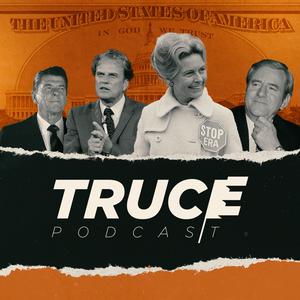
Get the free radio.net app
- Stations and podcasts to bookmark
- Stream via Wi-Fi or Bluetooth
- Supports Carplay & Android Auto
- Many other app features
Get the free radio.net app
- Stations and podcasts to bookmark
- Stream via Wi-Fi or Bluetooth
- Supports Carplay & Android Auto
- Many other app features


Truce - History of the Christian Church
Scan code,
download the app,
start listening.
download the app,
start listening.

